Rightwing rejects parallel Muslim society
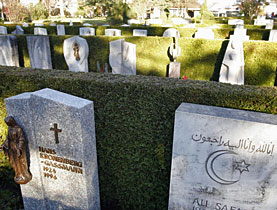
The rightwing Swiss People's Party is planning further steps against the spread of Islam in Switzerland following voters' approval of a ban on new minarets.
High on the agenda are tighter legal measures against forced marriages and genital mutilation of women, as well as a ban on wearing the burka in public and special dispensation from swimming lessons for Muslim pupils.
“Voters gave a strong signal to stop the claim to power by political Islam in Switzerland at the expense of our laws and values. Muslims must be spurred to integrate into society,” said Adrian Amstutz, parliamentarian and senior member of the People’s Party.
His group – one of the main parties in parliament – was a leading backer of an initiative to outlaw the construction of minarets, which won over 57 per cent of the vote in a public ballot at the weekend.
He says his party will reinforce its calls in parliament for further measures to contain the creeping Islamicisation of Swiss society.
“Forced marriages, female circumcision, special dispensation from swimming lessons and the burka are top of the list,” Amstutz said, adding that the party was also considering outlawing special Muslim cemeteries.
Party leader Toni Brunner said Muslims who settled in Switzerland had to realise that they could not turn up to work in a head scarf.
No parallel societies
The party said the outcome of the minaret ballot showed that Swiss voters did not want parallel societies and special rights.
“Our laws apply to everybody. We have to control immigration. Those who break the law have to leave the country,” a statement said.
The party collected enough signatures for an initiative aimed at expelling foreigners convicted of a crime or of cheating welfare. No date for the nationwide vote has been set.
In October the government announced it was planning to tighten the law to crack down on forced marriages, while the centre-right Christian Democratic Party has been pushing for a ban on wearing the burka – a loose body-covering including a face-veil – in a bid to fight for women’s rights.
Action
Amstutz is convinced the time is right to take action.
“Until now our proposals have been rejected or watered down,” he said. “Maybe it is finally dawning on the government and the other parties that they should do something.”
The party also made clear it would not tolerate any attempt to delay implementation of the minaret ban.
“Those who question whether the text of the initiative can be put into practice show an alarming lack of appreciation for democratic rights.”
The party leadership asked for Switzerland to suspend its membership in an international agreement if the European Court of Human Rights decided against the minaret ban. However, such a step was ruled out by Foreign Minister Micheline Calmy-Rey.
A local Muslim association in Switzerland announced on Monday that it would challenge in court a ban on the construction of a new minaret in the town of Langenthal, even if such a move would take years.
Chances are that Sunday’s decision by voters is likely to be overruled by the Strasbourg-based court, according to legal expert Walter Kälin, quoted by the Swiss News Agency.
There are currently four minarets in Switzerland and about 200 mosques and prayer rooms. Further requests to build minarets are pending.
Urs Geiser, swissinfo.ch
The Muslim community in Switzerland accounts for about 4.5% of the population.
Most Muslim immigrants came from the former Yugoslavia and Turkey.
Switzerland has become the first European country to ban the construction of minarets.
Just over 57% of voters approved the minaret ban in a nationwide vote on November 29.
The proposal was launched by members of the rightwing Swiss People’s Party and the ultra conservative Federal Democratic Union.
The initiative came in response to opposition by conservative groups at a local level against applications to build a minaret next to a mosque.

In compliance with the JTI standards
More: SWI swissinfo.ch certified by the Journalism Trust Initiative

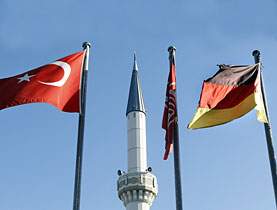
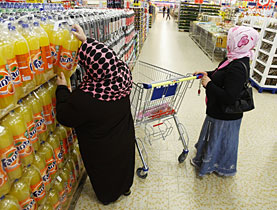
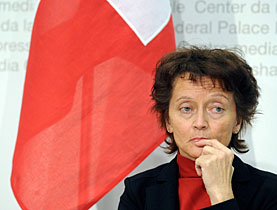
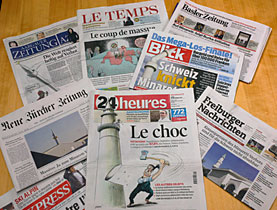
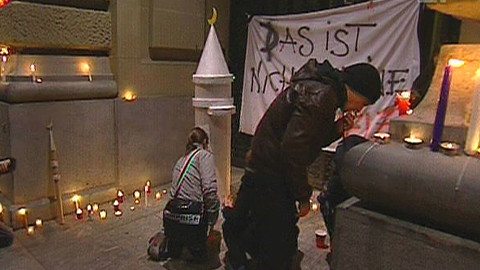
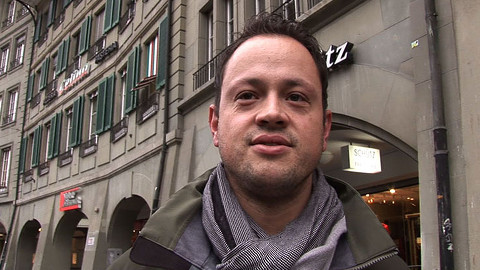
You can find an overview of ongoing debates with our journalists here. Please join us!
If you want to start a conversation about a topic raised in this article or want to report factual errors, email us at english@swissinfo.ch.